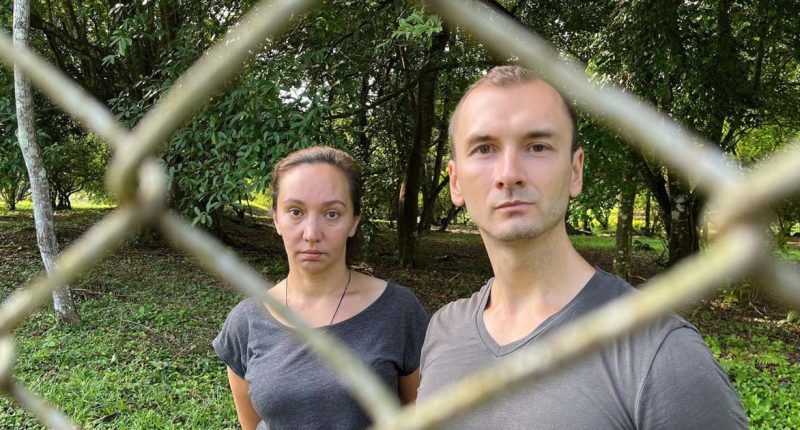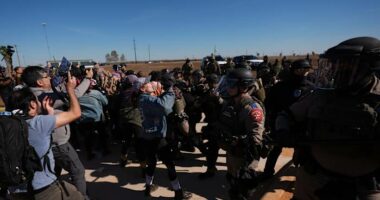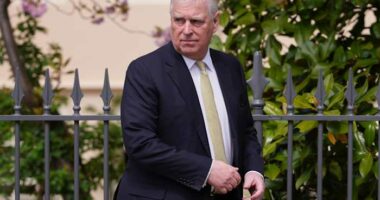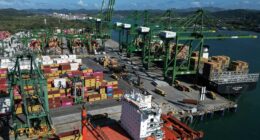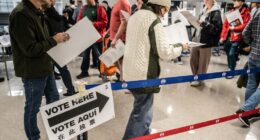Share this @internewscast.com
On Tuesday, Costa Rica’s Constitutional Court mandated that President Rodrigo Chaves’s administration free Asian migrants, previously deported by the Trump administration, who have been housed in a temporary facility in the country’s southern region since February.
With a majority of 4-3, the court ruled that the Costa Rican authorities breached the migrants’ rights by not offering “timely and sufficient information” regarding their immigration status or allowing them access to legal assistance. The court’s statement also criticized the lack of free media contact and the absence of information regarding asylum requests from the beginning.
The ruling requires the Costa Rican government to free the detained migrants within 15 days and to individually assess their immigration status in accordance with the law.
In February, the Donald Trump administration sent 200 Asian migrants to Costa Rica on two deportation flights, including nearly 100 children. The deportees came from countries such as China, Afghanistan, India, Pakistan, Russia, and Uzbekistan. More than 70 were minors.
The agreement between the two countries was reached as Costa Rica feared that President Donald Trump would retaliate if it refused to accept the migrants, according to statements made to the press by the president and the foreign minister.
The deportees were immediately taken to the Temporary Migrant Care Center (CATEM), located in the canton of Corredores, seven miles from the border with Panama. They slept cramped in shared, poorly ventilated bunks in a hot, humid region where temperatures often exceed 90 degrees Fahrenheit.
As of Tuesday, 28 people remained deported, including 13 minors, from Armenia, Russia, Azerbaijan, Afghanistan, Turkey, and Iran, Omer Badilla, Costa Rica’s Deputy Minister of the Interior and Police, told Noticias Telemundo.
The vast majority of the deportees, 107, were repatriated to their countries of origin. Another 35 left the center on their own, and 30 requested asylum in Costa Rica, Badilla said.
Costa Rican authorities described the Constitutional Court’s ruling as a “serious error” and assert that the migrants still there “enjoy complete freedom; they can leave and move freely,” according to Badilla.
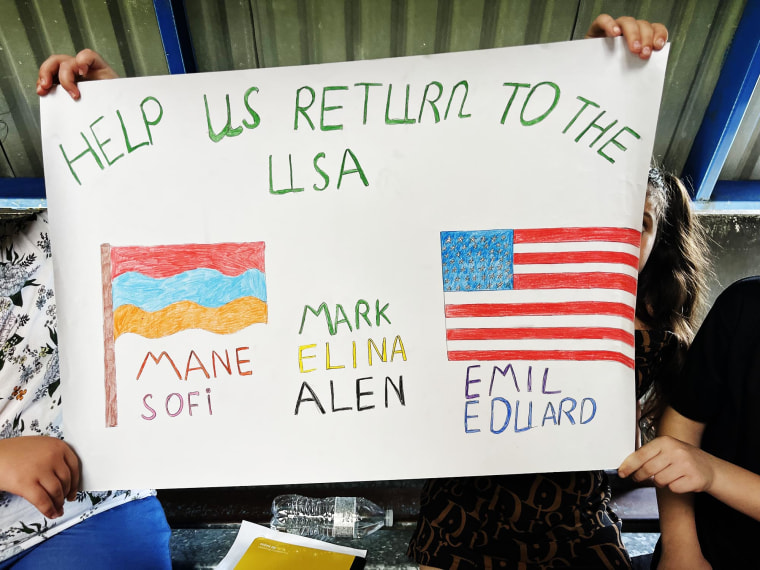
“(The constitutional ruling) makes no sense. For months, these people have had regular immigration status and complete freedom of movement,” the official said.
“From our perspective, the Constitutional Court is mistaken and making a serious error. It clearly doesn’t understand the current situation at CATEM,” he added.
The constitutional ruling responds to a habeas corpus petition against the Costa Rican government filed by the country’s former Minister of Communications, Mauricio Herrera.
In late April, Costa Rica granted humanitarian immigration status to the migrants held at the shelter after a group of human rights lawyers filed a lawsuit against the country before the United Nations Committee on the Rights of the Child, alleging that the government violated the rights of 81 migrant minors by detaining them at the shelter without legal counsel or access to education or psychological services.
At the time, Costa Rican authorities announced that the migrants, whose passports were confiscated upon arrival in the country, would receive their documents back and were free to leave the shelter and seek options to leave Costa Rica or seek asylum if they so desired.
In April, Noticias Telemundo visited CATEM and spoke with some of the migrants, including 36-year-old Russian German Smirnov, who was deported with his wife and 6-year-old son. The man, originally from St. Petersburg, said he worked in his country as an electoral official and witnessed how elections were manipulated in Russia. He said he sought out the organization of opposition leader Alexei Navalny, who died in a Siberian prison in 2024, to report fraud in the 2024 elections, but authorities under Vladimir Putin’s regime discovered him.
[“If I return to Russia] they’ll put me in jail or send me to war. It’s simple, because my country is at war with a neighboring country,” he said.
Help the powerful brother of the north
In announcing the agreement with the United States, Costa Rican President Rodrigo Chaves said the country was helping its “economically powerful brother to the North” and indicated that they feared punishment if they did not accept the migrants.
“If they impose a tax on our free trade zones, they’ll screw us,” Chaves said. “I don’t think they’ll do it, thank God… love is repaid with love… 200 come, we treat them well, and they leave…” he stated at a press conference.
Costa Rican Foreign Minister Arnoldo André Tinoco also expressed the country’s fear of Trump’s “pressure,” although he denied that it had materialized.
“What the president [Rodrigo Chaves] meant was that, through a gesture of goodwill, we would somewhat alleviate the pressure if the United States were thinking of imposing some kind of restriction that doesn’t interest us. Of course, we’re not interested,” André said in an interview with Noticias Telemundo in late March.
“There’s no pressure. Possibility? Of course it exists. Yes. Look at what the new US administration is doing around the world […] You’re not going to get me to say that I was pressured by the United States because that’s not true,” he asserted.
An earlier version of this story was originally published in Noticias Telemundo.
